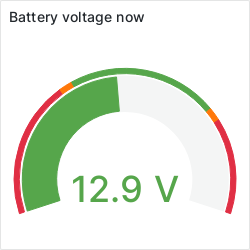Well, today’s mail had a surprise. Back about 6 years ago, I was sub-contracted to Jacques Electronics to help them develop some device drivers for their video intercom system. At the time, they were using TI’s TLV320AIC3204 and system-on-modules based on the Freescale i.MX27 SoC.
No driver existed in the ALSA tree for this particular audio CODEC, and while TI did have one available under NDA, the driver was only licensed for use with a TI OMAP SoC. I did what just about any developer would do, grabbed the closest-looking existing ALSA SoC driver, ripped it apart and started hacking. Thus I wound up getting to grips with the I²S infrastructure within the i.MX27 and taming the little beast that is the TLV320AIC3204, producing this patch.
As the code was a derivative work, the code was automatically going to be under the GPLv2 and thus was posted on the ALSA SoC mailing list for others to use. This would help protect Jacques from any possible GPL infringement regarding the use of that driver. I was able to do this as it was a clean-room implementation using only material in TI’s data sheet, thus did not contain any intellectual property of my then-employer.
About that time I recall one company using the driver in their IP camera product, the driver itself never made it into the mainline kernel. About 6 months later, another driver for the TLV320AIC3204 and 3254 did get accepted there, I suspect this too was a clean-room implementation.
Fast forward to late August, I receive an email from Jeremy McDermond on behalf of the Northwest Digital Radio. They had developed the Universal Digital Radio Controller board for the Raspberry Pi series of computers based around this same CODEC chip. Interestingly, it was the ‘AIC3204 driver that I developed all that time before that proved to be the code they needed to get the chip working. The chip in question can be seen up the top-right corner of the board.

Timely, as there’s a push at the moment within Brisbane Area WICEN Group to investigate possible alternatives to our aging packet radio system and software stack. These boards, essentially being radio-optimised sound cards, have been used successfully for implementing various digital modes including AX.25 packet, D-Star and could potentially do FreeDV and other digital modes.
So, looks like I’ll be chasing up a supplier for a newer Raspberry Pi board, and seeing what I can do about getting this device talking to the world.
Many thanks to the Northwest Digital Radio company for their generous donation! 🙂


Recent Comments